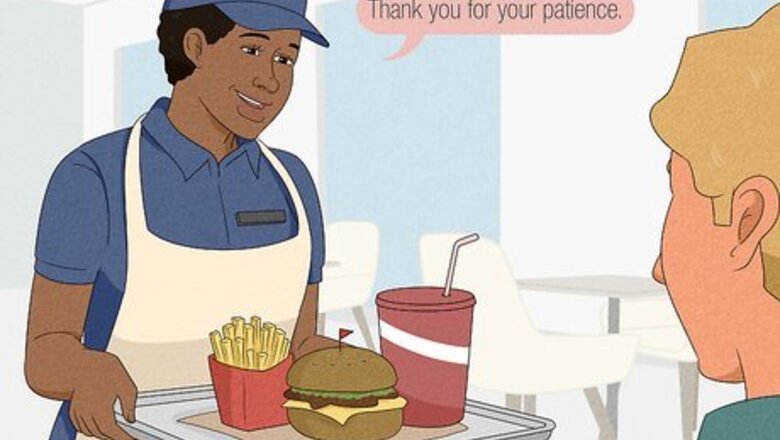
views
- “Thank you for your patience” is a formal expression of appreciation used when someone’s late to an appointment or taking a while to resolve an issue.
- Respond to “Thank you for your patience” with a simple “No problem” or “Certainly” to show that you’re unbothered.
- Alternatively, people may say “I appreciate your time” or “Thank you for bearing with us” to express the same polite sentiment.
What does “thank you for your patience” mean?
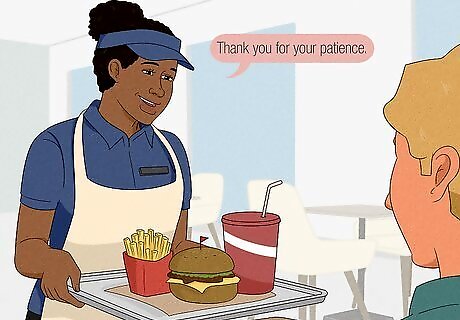
“Thank you for your patience” shows appreciation for someone’s time. Let’s pretend a doctor is late for an appointment with you. They may enter the room saying, “Thank you for your patience,” to politely say, “I appreciate you waiting for me. My apologies.” The phrase expresses their gratitude toward your calmness during a frustrating situation. More often than not, “thank you for your patience” is used by business professionals, customer service agents, and in doctor-patient relationships. “Thank you for your patience” is often confused with “Thank you for your patient.” Using the term "patient" in this context is grammatically incorrect.
When You’ll Hear “Thank You For Your Patience”
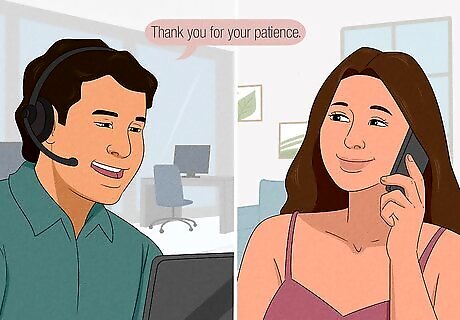
If you’re chatting with customer service More often than not, “thank you for your patience” is a phrase used by customer service representatives. Say you call a company, business, or store with an inquiry. If you’re placed on hold for an extended period of time, the representative may say, “Thank you for your patience,” when they finally return. For example, let’s say you call your insurance company, and your representative places you on hold for 30 minutes. They may then say, “Thank you for your patience, Pam. I was able to get some more information about your bill.” Sometimes, “thank you for your patience” can come across negatively. Many customer service centers encourage employees not to use the phrase as it may cause customers to feel more frustrated than appreciated, especially if they’ve been on hold for a long period of time.
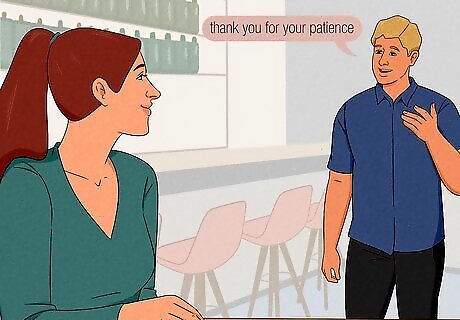
If someone’s running late A friend, doctor, or coworker may use the phrase “thank you for your patience” if they’re not on time. This is a polite yet somewhat formal way for them to say, “Hey! I’m sorry I’m late. Thanks for waiting for me.” For instance, perhaps you’re meeting a friend to study for a big test and they text you that they’re running late. If you respond with “No worries! I grabbed us a table in the back,” they may say, “Great! Thanks for your patience!”

If someone’s trying to resolve an issue Perhaps you’re at work and are dealing with a difficult project or trying to get information from a colleague. Someone may say, “Thank you for your patience,” in an email or conversation if it’s taken them a while to get back to you. For example, say you’re running behind on a deadline and emailing your supervisor a timeline of the team’s progress. You might end your message with, “Thank you for your patience. The team and I are working hard to get this done by the end of the week. I’ll keep you posted if we come across any more obstacles.”
How to Respond to “Thank You for Your Patience”

“No problem.” Try responding to “Thank you for your patience” with this casual response. A simple “No problem!” or “No worries” lets the speaker know that no harm is done and you appreciate their gratitude. Them: “Hey! Thanks for your patience, but I’m running late. Could you grab us a seat?” You: “Yeah! No problem at all.”
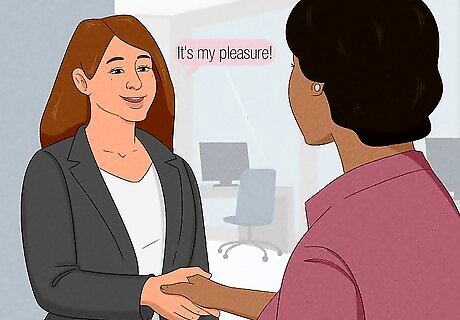
“It’s my pleasure!” Use this kind of response in semi-professional circumstances. A quick “Certainly” or “It’s my pleasure” conveys positivity without being too casual. Try this response with a doctor, boss, or potential employer. Them: “Thank you for your patience. I appreciate your willingness to stay. We had a situation pop up in the showroom.”You: “It’s my pleasure. These things happen!”

“Thank you for seeing me.” Return the speaker’s gratitude with a thankful message of your own. Statements like “Thank you for stopping by” and “Thank you for your effort” are great ways to formally show gratitude and clear any tension from the delay. Them: “Thank you for your patience. I apologize for running behind today.”You: “Well, thank you for seeing me at such short notice.”
Alternative Ways to Say “Thank You For Your Patience”

“I appreciate your patience and understanding.” Go the extra mile and verbally express your gratitude with this formal statement. This message is kind, expressive, and professional, showing that you’re a caring person ready to take responsibility for your actions.

“Thank you for bearing with us.” Share your gratitude positively with this statement. A simple “Thank you for bearing with us” or “Thank you for waiting for us” shows thanks and helps you express that you're at fault.
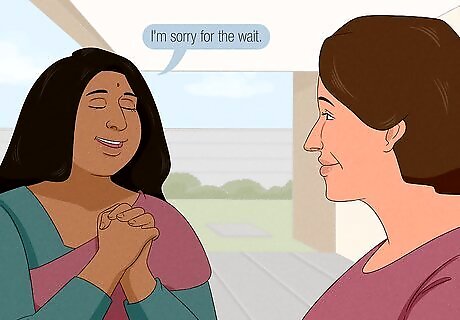
“I’m sorry for the wait.” When in doubt, apologize. No matter the situation, owning up to your mistakes and sympathizing with others is always best. Saying “I’m sorry” or “I apologize for the wait” helps you take accountability for your absence.

“I’m committed to solving this issue.” While “thank you for your patience” shows appreciation, this alternative response shows a commitment to change. Use this phrase if you hope to never be tardy or delayed again.

“I appreciate how you’ve handled this.” In a formal setting, express your appreciation directly by stating why you value someone’s patience and time. You might also say, “I appreciate how you have brought this to our attention,” or “I appreciate how you care about this company.”
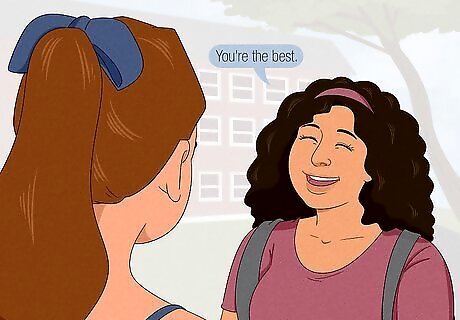
“You’re the best.” If you’re late meeting a friend, consider using this response instead of “thank you for your patience” to casually say, “Sorry I’m late! You’re awesome for waiting.”



















Comments
0 comment